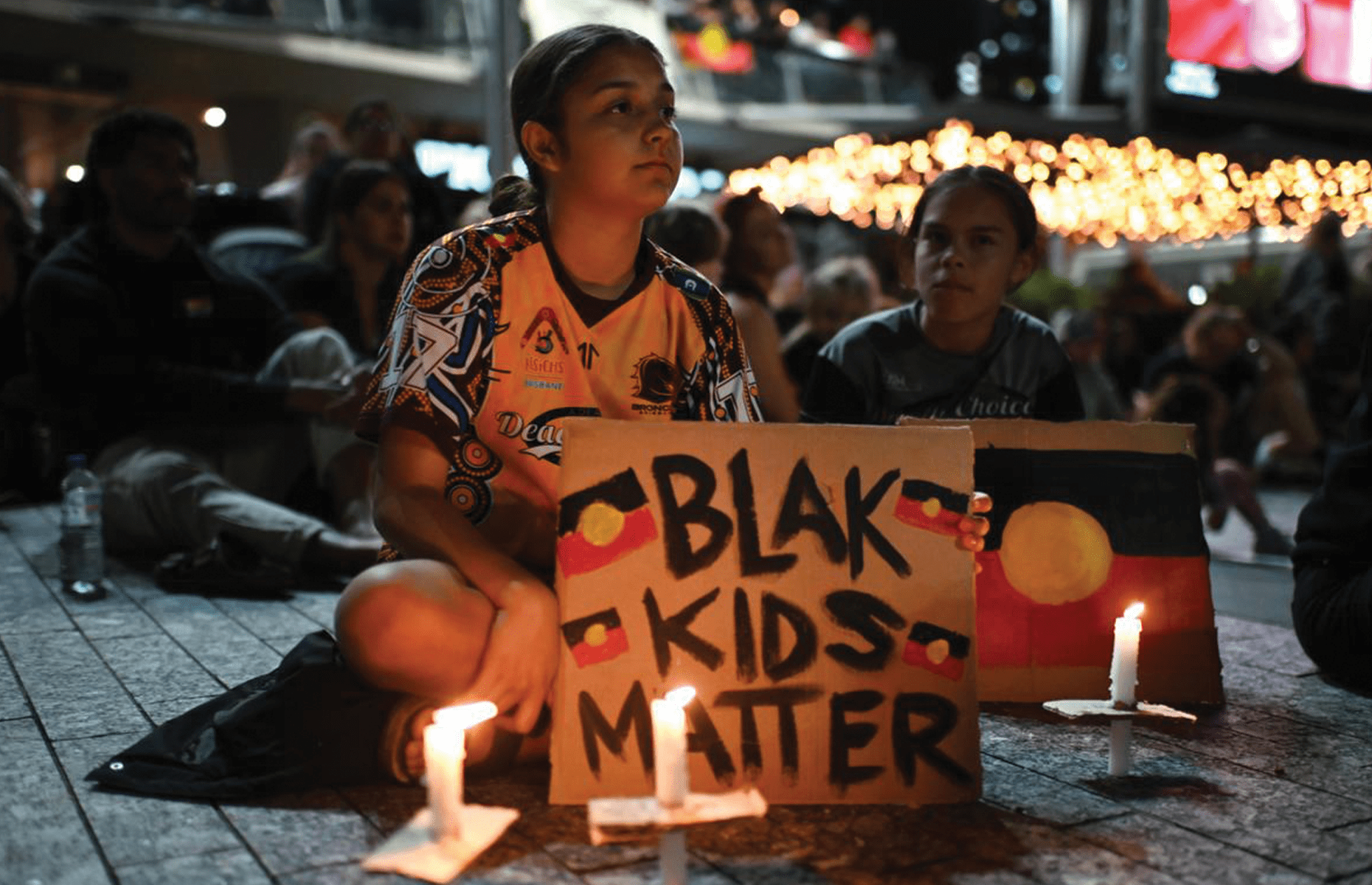CW: Aboriginal and Torres Strait Islander readers are advised that the following article contains discussion of an Indigenous boy who has died.
On 13 October, 15 year-old Noongar-Yamatji boy Cassius Turvey and his friends were chased and attacked by a group of men while walking home from school in Perth. Cassius was admitted to hospital with lacerations to his ear and forehead; he later suffered seizures and two strokes before passing away on 23 October. The attacker, 21 year-old Jack Steven James Brearley, has since been charged with murder.
Police are yet to confirm a motive, but a GoFundMe started by his cousin suggests Brearley wrongly presumed Cassius was responsible for breaking windows in the neighbourhood. Cassius was wearing his school uniform when Brearley attacked him, and it is reported that racial slurs were directed at Cassius and his friends during the attack. Yet police are not treating it as a racially-motivated incident, with WA Police Commissioner Col Blanch saying “it may be a case of mistaken identity, it might be a case of the wrong place at the wrong time.” Blanch has since backtracked from these comments after criticism from the community. To suggest the crime is any more just for being an alleged case of mistaken identity misses the racism at the core of the issue — even if Cassius was mistaken, he was mistaken for another young black boy. Nobody deserves to be murdered.
As highlighted in an open letter signed by Noongar leaders Jim Morrison, Dawn Wallam, David Collard, Donna Nelson, Justin Kickett, and Hannah McGlade, Cassius could not have been in the wrong place at the wrong time. He, like millions of other students, was simply walking home from school with his friends. If walking home from school is being in “the wrong place”, then that is a damning and woeful reflection on the state of our country.
Over 40 vigils were held across the country on 2 November to mourn the tragedy and remember Cassius. According to his mother Mechelle Turvey, Cassius, a Year 9 student, was known for his love of basketball, his lawn-mowing business, and helping his mates with their homework.
“We knew from the early days Cassius would be a shining star. This was easily seen by his family by the way he smiled, he laughed. He was jovial, kind and his heart – larger than life,” she said in a statement ahead of the vigil in Perth.
Cassius’ death is painful and traumatic, weighing especially on the hearts and minds of Indigenous people and communities. Unfortunately, for them this suffering is nothing new. We share in this pain and anger while recognising that most of us will never truly experience nor understand this sense of loss.
Against a backdrop of over 500 Indigenous deaths in custody since 1991, the ongoing coronial inquest into the humiliation and killing of Kumanjayi Walker by Constable Zachary Rolfe in the Northern Territory, and the recent death of Jai Wright after his bike was hit by a police car in Alexandria this year, Cassius is yet another victim of the Australian judicial system, a structure designed to harm Indigenous lives and livelihoods, and sadly won’t be the last. The system we live in vilifies young Indigenous men.
Recent findings that First Nations women are being murdered up to 12 times the national average highlight the failure of institutions to effectively address the racialised nature of violence in this country. The ongoing inability of settler-colonial institutions to name and grapple with racial violence is an indicator of the ongoing nature of the colonial project. It continues to be the standard for First Nations peoples to suffer in the name of upholding white, colonial values and systems — it must end now. We still have so far to go to achieve real justice.
As student journalists, we have a responsibility to use our platform to uplift the voices of First Nations peoples, as well as resist the settler-colonial systems that continue to perpetrate violence against First Nations peoples. It is not enough to simply communicate the facts as they’re told to us by oftentimes white authorities. Our responsibility is to name the undeniable racism underlying these acts of violence that authorities are too quick to shy away from. Honi Soit will continue to be part of the fight to dismantle these systems until real First Nations justice is achieved.
Amidst the tragedy of her son’s death and the outpouring of grief from the community, Cassius’ mother, Mechelle Turvey, calls not for hatred or violence. Instead, she calls for justice – she calls for love.
“I don’t want to fuel hate,” she said at Wednesday night’s vigil. “Hate fuels hate, violence fuels violence.”
We will use our platform to scrutinise racist authorities. We will use our platform to spread love.





